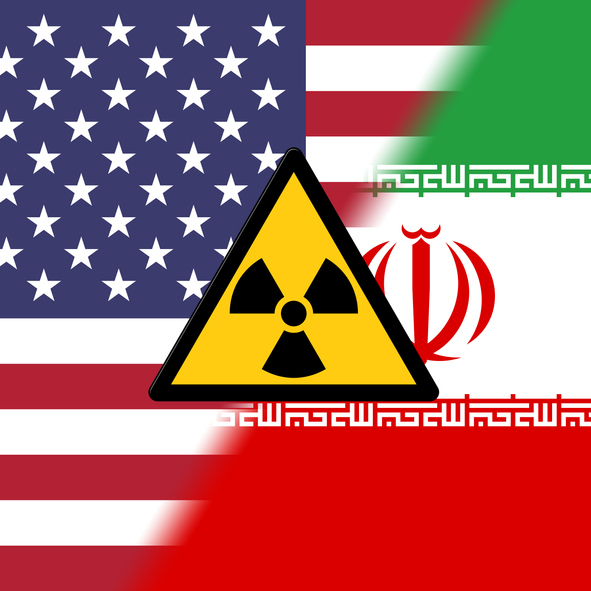iStock.com/ Credit:stuartmiles99
For months, President Biden and his Iranian counterpart have said they want to rejoin the 2015 nuclear agreement known as the Joint Comprehensive Plan of Action. Yet neither side is any closer now to that goal, with Tehran moving further away from compliance and rejecting Washington’s offer to talk.
This standoff highlights the hazardous path of any U.S. return to the JCPOA, even if intended as the first step toward a better deal. An array of obstacles threatens to make this policy self-defeating, and perhaps impossible, for the United States.
Most importantly, and despite Iran’s insistence it can simply reverse every nuclear violation, both countries have taken steps beyond the original agreement that they cannot easily walk back. Breaching the JCPOA’s limits on advanced centrifuges provides Tehran invaluable experience operating these machines in ever-larger numbers, and the lessons learned will endure even if the centrifuges do not. Iran’s prohibited experiments in producing uranium metal for the core of a nuclear weapon pose similar challenges. Iran also is building new underground nuclear facilities not covered in the 2015 agreement, which it argues are not violations.
Iran could resume adhering to the letter of the JCPOA without rolling back these critical advances, leaving its now-expanded nuclear program facing even weaker restraints than when it previously implemented the agreement.
Further complicating matters is the new elephant in the room. Israel’s 2018 seizure of Iranian nuclear archives demonstrated that the JCPOA, by allowing Iran to essentially self-report its suspected past weaponization work, severely hindered inspectors’ verification of Tehran’s covert progress toward a bomb. The heist also revealed how these military aspects of Iran’s ostensibly “civilian” program were more extensive and longer-lasting than even inspectors believed when the deal was implemented.
Tehran maintains that it already addressed these concerns in 2015. It slow-rolls inspectors’ requests and U.S. demands to clarify new archival findings, and recently it rolled back related transparency measures. This means the Biden administration would need to be willing to reenter an agreement with another party it now knows has acted in bad faith throughout. By precluding a full accounting of Iran’s previous work, rejoining the JCPOA also would undermine the ability to monitor similar activities now or in the future — and with it, an appreciation of just how close Iran could be to nuclear weapons capability.
The American side of the equation also looks fundamentally different now. After leaving the JCPOA in 2018, the Trump administration transformed U.S. sanctions on Iran by imposing a new, separate layer of terrorism-related designations atop the economic sanctions that previously were suspended under the agreement. Technically, the Biden administration could resume adhering to the strict letter of the deal by removing the latter while maintaining the former.
The net result would be far less economic relief than Tehran clearly expects for reviving the JCPOA. Foreign Minister Javad Zarif tweeted as much late last month, saying Iran will undo its nuclear violations only after the U.S. “unconditionally & effectively lifts all sanctions imposed, re-imposed or re-labeled by Trump.” Perhaps acknowledging the complexities of these steps, last week another senior Iranian official said his country would resume negotiations if Washington could lift all sanctions within a year.
Zarif’s position also reinforces the view that neither Washington nor Tehran wants to go first in resuming compliance, lest it sacrifice leverage over the other. This thorny problem of sequencing a mutual return to the deal is aggravated by the fact certain U.S. sanctions could be lifted with a few strokes of the pen, while Iran would require much longer, likely several months at least, to resume even superficial compliance, which inspectors would need additional time to verify.
This issue of leverage also underscores how, by returning to the JCPOA, Washington would sacrifice much of its bargaining power for pursuing a better follow-on agreement. Meanwhile, Iran remains busy with its own counterpressure campaign, steadily advancing its nuclear program and launching proxy attacks on American targets in Iraq.
And though the JCPOA is narrowly an executive agreement, both the Biden and Rouhani administrations must contend with serious domestic political opposition to rejoining it. The White House also will have to consider concerns from its Middle East allies, with whom it has vowed to consult.
As our new report by the Jewish Institute for National Security of America argues, these hurdles raise the risk of an untenable “more for less” interim deal, whereby the U.S. tries to get back to the original nuclear agreement by giving up too many sanctions, in exchange for too few nuclear concessions from Tehran.
Precluding this unacceptable outcome means recognizing the impossibility of returning to the JCPOA and instead embracing greater pressure that could, as Biden has pledged, help secure a better agreement that actually closes every Iranian pathway to the bomb.
Eric Edelman, former undersecretary of defense for policy, is counselor at the Jewish Institute for National Security of America’s Gemunder Center for Defense & Strategy, where Jonathan Ruhe is director of foreign policy.
Originally published in Washington Examiner

